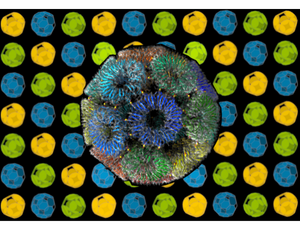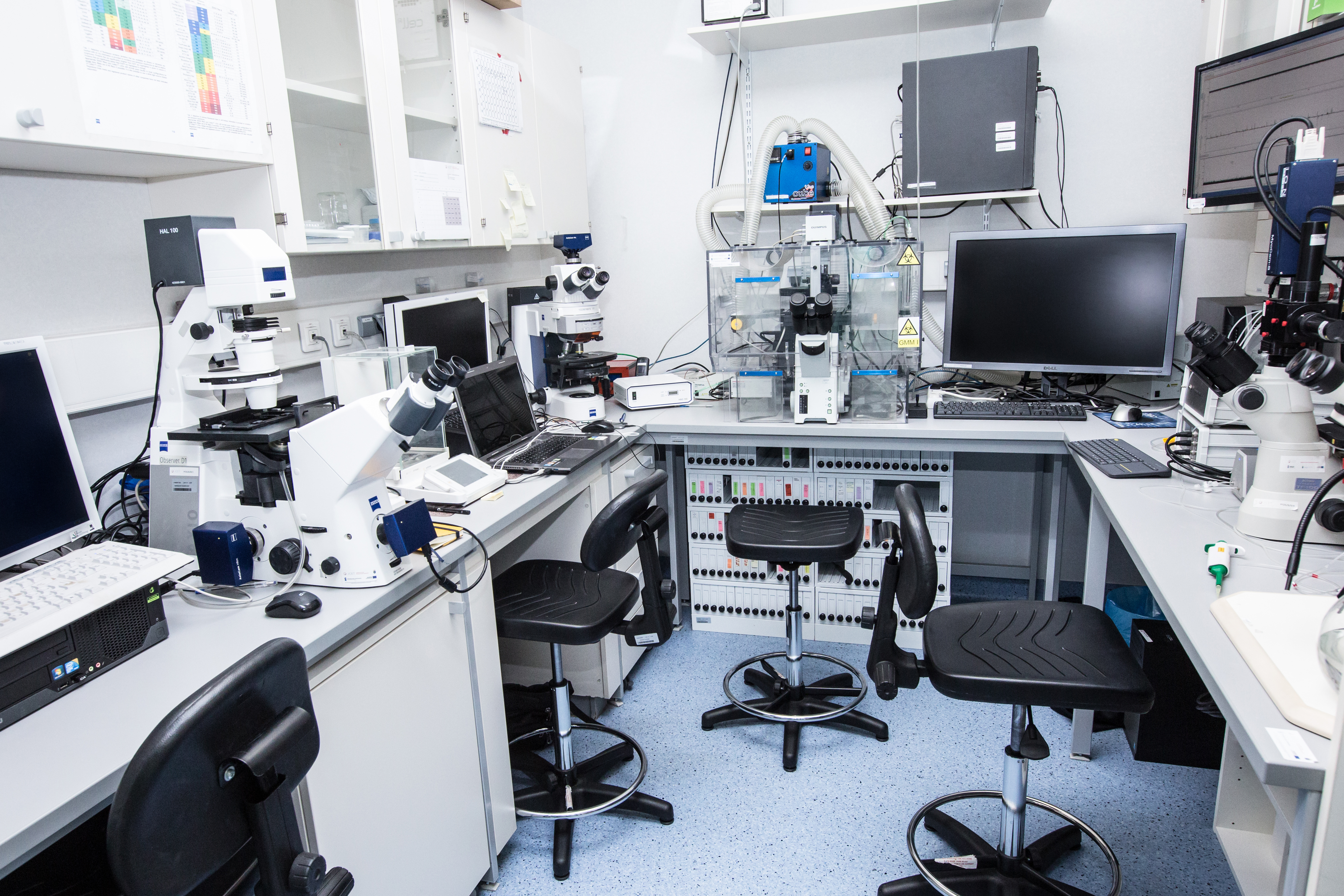
Pursuant to § 7 sections 1 and 3 of Resolution No. 91/IX/2021 of the Senate of the Jagiellonian University of 29 September 2021 on the rules of recruitment for the Doctoral School of Exact and Natural Sciences at the Jagiellonian University in the academic year 2022/2023, the Director of the Doctoral School of Exact and Natural Sciences announces a competition for one doctoral student with a scholarship financed from the research project funds as part of the 4-year PhD study programme in Biomedical Sciences.
Within the NCN funded project entitled “efFect of nanoscale, three dimensional arrangement of proteins on biological and Therapeutic activity (FIT)”, a commission set up at the School will conduct recruitment for the 4-year Biomedical Sciences PhD study programme in the academic year 2022/23.
The project manager, prof. dr hab. Jonathan Heddle offers an opportunity to complete the doctorate in the following area: Protein engineering, Smart Drug delivery, Cell Biology.
After the interviews and the evaluation of the candidates, the Chairman of the committee presents a report to the Director containing a list of candidates recommended for admission to the school as part of the research project.
Schedule of the competition:
- Opening of the competition: 01.09.2022
- Application submission deadline: 09.09.2022, noon
- Entrance exams: 20.09 - 21.09.2022
- Committee meeting - no later than: 21.09.2022
- Announcement of the results: 26.09.2022
- Enrolment: 27.09.2022 - 29.09.2022
- Enrolment (reserve list): 30.09.2022
Application documents
- Motivation letter, explaining how the applicant’s background and research interests make them a suitable candidate for the position;
- Curriculum vitae (CV) with particular emphasis on scientific achievements;
- A copy of degree certificates (master degree, master of engineer, equivalent);
- Names of researchers (two referees including a former supervisor) giving references to the candidate (their contact numbers and academic title);
- Reference letter written for the candidate by a researcher holding at least the academic degree of doktor habilitowany (post-doctoral degree) or being an employee of a foreign higher education institution or research institution who has a substantial track record in scientific issues related to life sciences;
- Documents demonstrating the scientific achievements listed in the curriculum vitae, e.g. first page of the article;
- Transcript of grades: diploma supplement, or the official transcript of grades, or another document listing completed courses and grades. Information about grading scale must be included;
- The original application and a 35 mm × 45 mm photograph without a headgear on a light background (digital version to upload into the Online Application System).
Any document submitted in a language other than Polish or English must be accompanied by a certified translation into Polish or English.
The ideal candidate should fulfil the following criteria:
- Possess master, master of an engineer or equivalent degree in molecular biology, protein engineering, structural biology, biochemistry or related areas;
- Some experience in cell biology and cell culture techniques would be advantageous though not obligatory;
- Be motivated to study biochemistry and structural biology and have an interest in inventing next generation smart drug delivery systems;
- Have strong work commitment and the ability for independent work;
- Have excellent written and oral communication skills in English;
- Have good skills in work management and experimental record keeping;
- Able to work across disciplines and be willing to gain expertise in new areas;
- Able to work as a part of the team and with international collaborators.
Please send your application documents (in English only) to the project manager prof. dr hab. Jonathan Heddle (Phd, Dsc) (jonathan.heddle@uj.edu.pl) and upload them into the Online Application System (irk.uj.edu.pl).
The Bionanoscience and Biochemistry laboratory (
www.heddlelab.org) is recruiting a doctoral student for a generous, fully-funded position with a duration of up to four years. The project aims to design and produce DNA and protein based artificial “smart” nanoparticles that will be able to i) prevent pathogenic bacteria from invading tissues and b) be able to deliver therapeutic molecules to diseased tissues. The successful candidate will have the opportunity to work on all aspects of the project in what is a highly collaborative project. The main focus of the PhD project will aim at designing artificial protein and DNA nanoparticles able to block pathogenic bacteria form invading cells.
While working on the project, you will use in silico protein/DNA design techniques to design nanoparticles. You will use molecular biology and biochemistry techniques to produce particles. You will learn structural biology techniques such as Cryo-EM and other biophysical techniques to characterise your particles and cell biology techniques to assess their therapeutic potential. You will be given the opportunity to learn important soft skills such as presentation and management skills. You will also be able to present your work at national and international conferences. You will be a valued member of the Bionanoscience and Biochemistry Laboratory which is an intellectually stimulating home to a vibrant group of bionanoscientists and biochemists.
More information about the Bionanoscience and Biochemistry laboratory is available under the
LINK.
Documents required from the selected candidate for entry within PhD study programme Biomedical Sciences:
- the original OAS application printed out from the system, containing a photograph;
- a photocopy and the original for inspection of: a diploma or other document of graduation of a higher education institution abroad entitling the holder to undertake education in order to obtain the degree of doctor in which it was issued, recognized as equivalent to the relevant Polish master's diploma, and if, by the date of entry, the candidate does not yet hold a master's diploma document, a certificate issued by the higher education institution confirming that the candidate has passed the diploma examination, containing information on the right to take up education in order to obtain the degree of doctor in whose system the institution operates, with the grades given from the diploma examination, from the diploma thesis and on the diploma (for graduates of the second degree studies also a certificate containing these grades from the completed first degree studies);
- a photocopy and the original for inspection: a diploma supplement;
- for inspection: identity document (passport in case of foreigners);
- originals of all other documents provided at the registration stage in the form of a scan.
In the event of exposure to harmful, noxious or hazardous factors, the applicant will, at the time of registration, be referred for a medical examination by an occupational medicine physician. The candidate shall be obliged to deliver, within the time limit set by the programme manager, a medical certificate confirming the absence of contraindications to take up education (applies only to some PhD study programmes).
Higher education diplomas awarded abroad should:
- bear an apostille clause if the issuing country is covered by the Convention abolishing the requirement legalisation for foreign public documents, done at The Hague on 5 October 1961 (Journal of Laws of 2005, No. 112, item 938) or
- be subjected to legalisation, in other cases.
Any document submitted in a language other than Polish or English must be accompanied by a certified translation into Polish or English.
Insurance:
Each doctoral student, including a foreigner, admitted to the doctoral school is obligatorily subject to health insurance if he/she is not covered by such insurance on other grounds (e.g. employment relationship, contract of mandate, business activity, insured as a family member under 26 years of age, as the spouse of an insured person). The health insurance contribution is paid by the Jagiellonian University and is financed from the State budget. In addition, a doctoral student receiving a doctoral scholarship is subject to compulsory retirement and disability insurance and accident insurance.
IMPORTANT:
A person admitted to the doctoral school begin education and acquire doctoral student rights upon taking the oath. The Department of Personal Affairs reports each doctoral student admitted to the School to compulsory health and social insurance at the commencement of education. Until that time foreign candidates are obliged to cover the costs of insurance for the time of travel, treatment, etc. individually.


